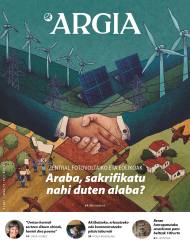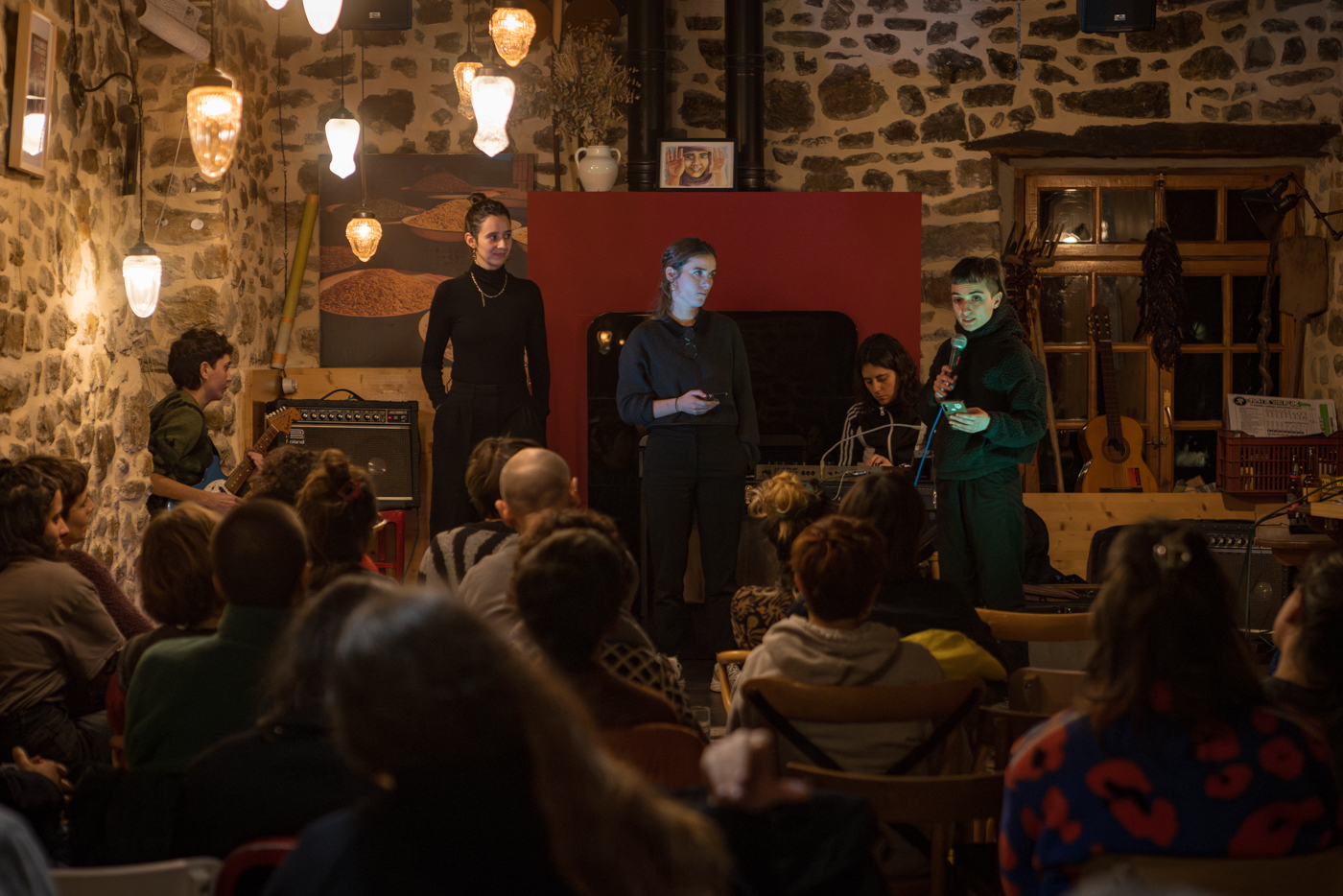"You learn to enjoy literature and you have to work that learning process in the classroom."
- He is a professor of literature, a researcher and a writer based in Banka. A talk on the poetry of Ipar Euskal Herria was held in Itsasu at the end of September. Among other things, we've started to chat with him to bring us to those who have been wrong.
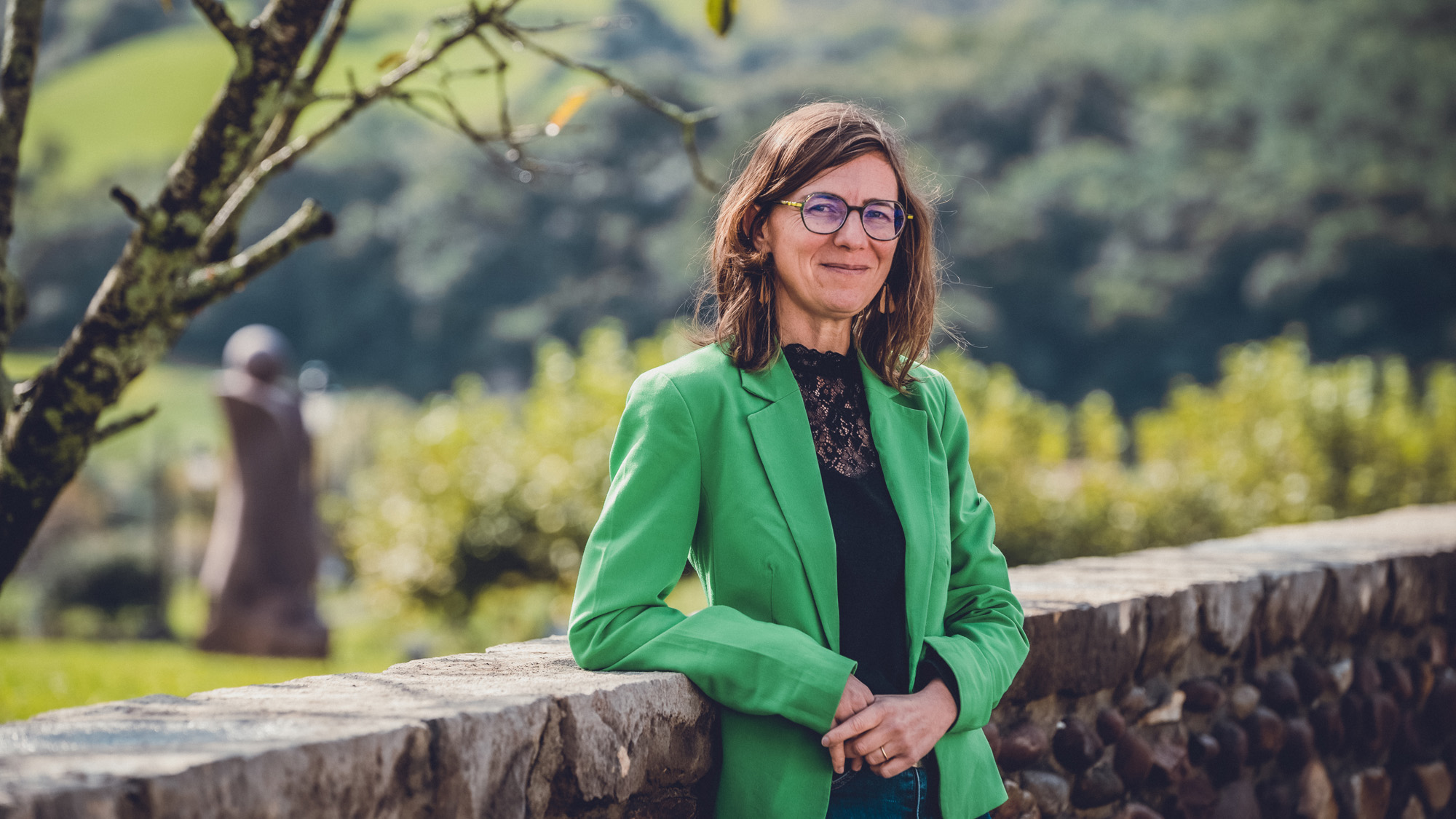
In his speech he mentioned that Itxaro Borda is the most prolific poet of Ipar Euskal Herria.
Yes, it is. Poetry has dared to go a long way from the traditional way, it is played with terrible risks, creating great confusion with languages, sounds. And it highlights issues that until then were seen as nothing more than a hundred: love among wives, deep worries about life, very subtle things. It has shown that you can say what you want, whatever you want, with the Basque Country. I think that freedom and the joy that it takes in writing, it's noticeable and scarcely afraid, it's all about the themes of its most intimate life.
What are other poets that should be made known?
In cases of force majeure, we can say, Iratzeder. Iratzeder has written a lot. It is true that his poetry is prayer, it was friar, full of hope in god and in the future. Maybe that's why today it's not going to be so fashionable, but it has a beautiful, playful style with words, very funny. Her fascination and admiration for the beauty of nature is very moving. Fortunately, life is not just despair, war and pessimism. And it's he who has worked that clear part of life. In my opinion, Iratzeder is one of the largest poets in Ipar Euskal Herria.
Manex Erdozeintzi Etxart is also a particular teacher. In his poetry there are social concerns. I always thought of youth, that life was changing, in those decades of 1970-80-90. And also he, without denying the difficulties and fatigue of life, establishes hope in youth, dreaming that the people can have a happy future.
Meet another: Eñaut Etxamendi. Known for his songs. The songs seem very simple, but that simplicity is very much worked and cared for. Sociopolitical commitment is known, as are introverted feelings. Love. He also waited for the youth and was filled with affection for the people. His work is very emotional.
Those would be the pattern. Also Jean Louis Davant. He has written seven collections of poems of all kinds: about nature, about some of the main historical figures of Euskal Herria, with great concerns about life.
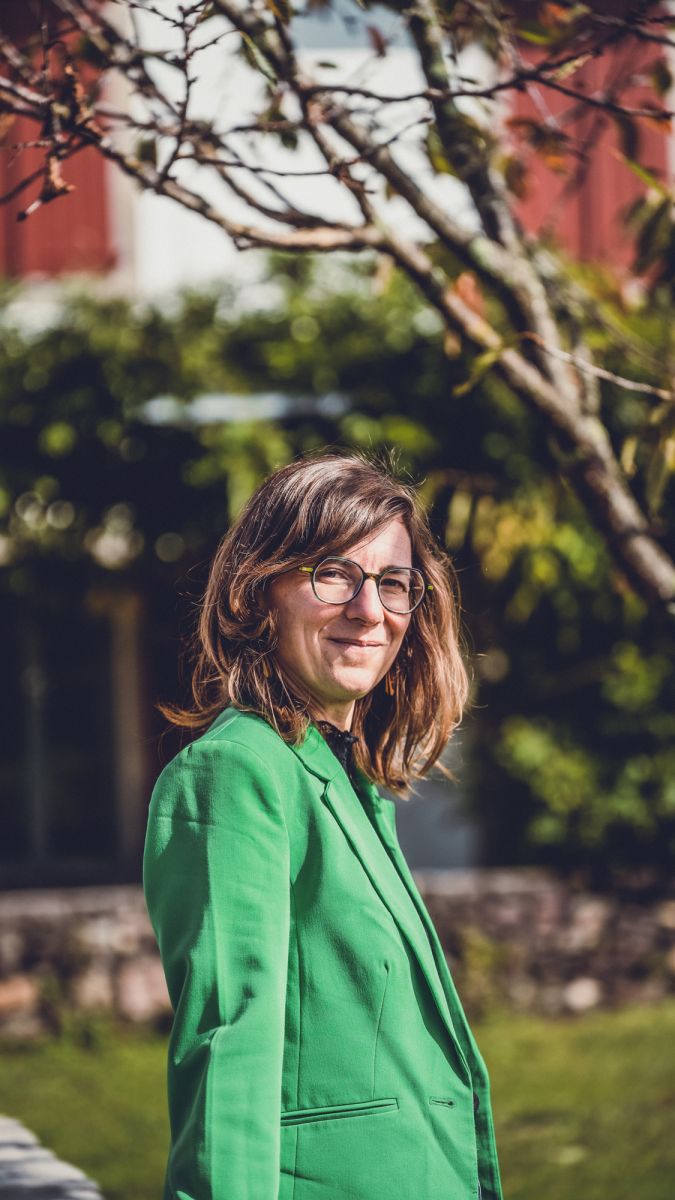
What about Daniel Landart?
Also. The poems he wrote for twenty years and which were musicated by Anje Duhalde and Mixel Ducau, we know them through the Akelarre and Errobi groups. Youth cries on the conditions of the workshops and on social classes.
Also from his time, Manex Pagola, who has sung his poems, has also written in Basque, Basque, Basque, Basque, Basque and Basque.
You also mentioned Mari Jeanne Minaberri as a poet at the conference.
Mari Jeanne Minaberri is known for his didactic and narrative poetry, as it is directed at children. Xoriak kantari, known for the album Oskorri. But it also has other poems. There are other pearls like her, who in 1989 reflected on Henriette Aire's thirst, maternity and paternity for the Truth. He opposed the social conventions of the society of the time and the view of society. Very exciting and very present too.
Another pearl is Maddi Pelot, known for her science fiction tales, but she has also written poems. In fact, to understand a little hermetic or difficult, symbolism, but why not also explore the limits of poetry in Basque? His concerns are also noted, he refers in the poems to the fear of death and to the terrors or dark parts that we all have. The Spokesmen for Aurelia Arkotxa are scholarly poetry, full of references, to Latin Greek mythology or to the Bible or to some ancient texts.
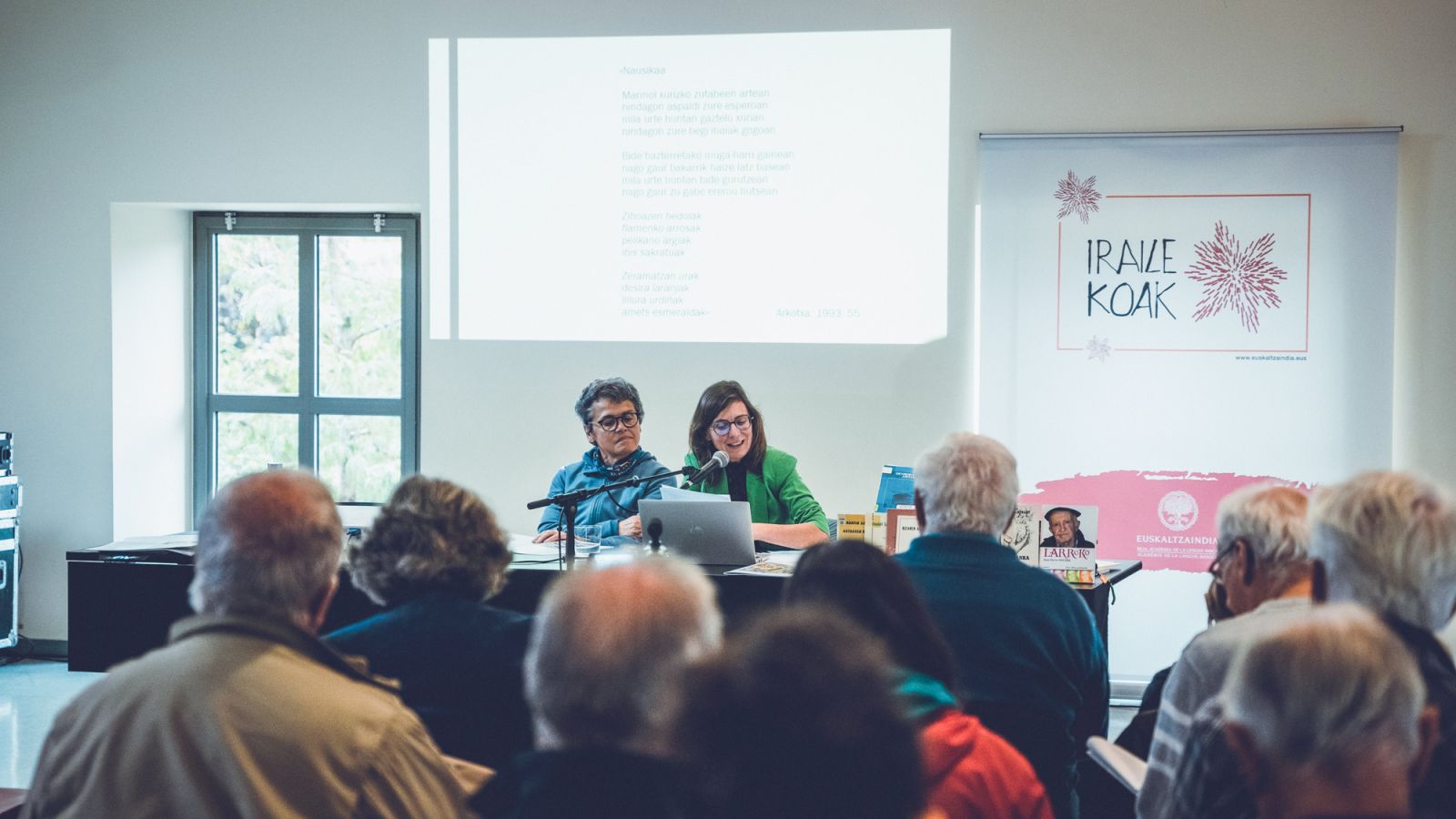
Jon...Despite being
a controversial person, their writing is shocking. The issues it has are disgusting, perhaps today it would be censored, it is noteworthy that in the decades of 1970-80 it could be published. I hate and hate everybody, I see the person pathetic, a great evil, a hatred of himself.
Then there are silent poems that don't get so far ahead. Agustín Zamora and his collections. They're short poems, I'd like to immortalize a transitory moment. Jakes Ahamendaburu, her first book is entitled Isilka misilka. He explores his personal intimacy. Silent as well, or one that hasn't published long ago, Jon Casenave, published love poems like Zutaz amoroski and Ordu Baldas.
In the curiosities one can cite poems of Txomin Peillen, very intellectualist. We remember the orientalist poems. Those who do the epic praise of Abdel Kader. It is also worth mentioning Erik Disarry, who does conceptual poetry, linked to contemporary art. What's interesting is the process, like in contemporary art.
Could we say that the poetry of Ipar Euskal Herria is about to die today? Is it aged?
Xalbador was the one who launched our modernity in the poetry of Ipar Euskal Herria. On the one hand, we can say that yes, he is dying, because there are few safe readers, vulgar poets. And because there is no 50-year-old poet; except you, Maddi, this year proves the opposite.
Maybe there are other forms of poetry that are going to be socialized through bertsolarism, singing or rap, and that's where poetry takes a new path. In this respect, it is not said that the common power has disappeared. For example, it seems to me that the texts of Odei Barroso are very poetic; I mean, care, elaborate, sound and rhythmic, a special lyrical voice is known, with deep anguish, which is in a search. I think that's the basis of poetry.
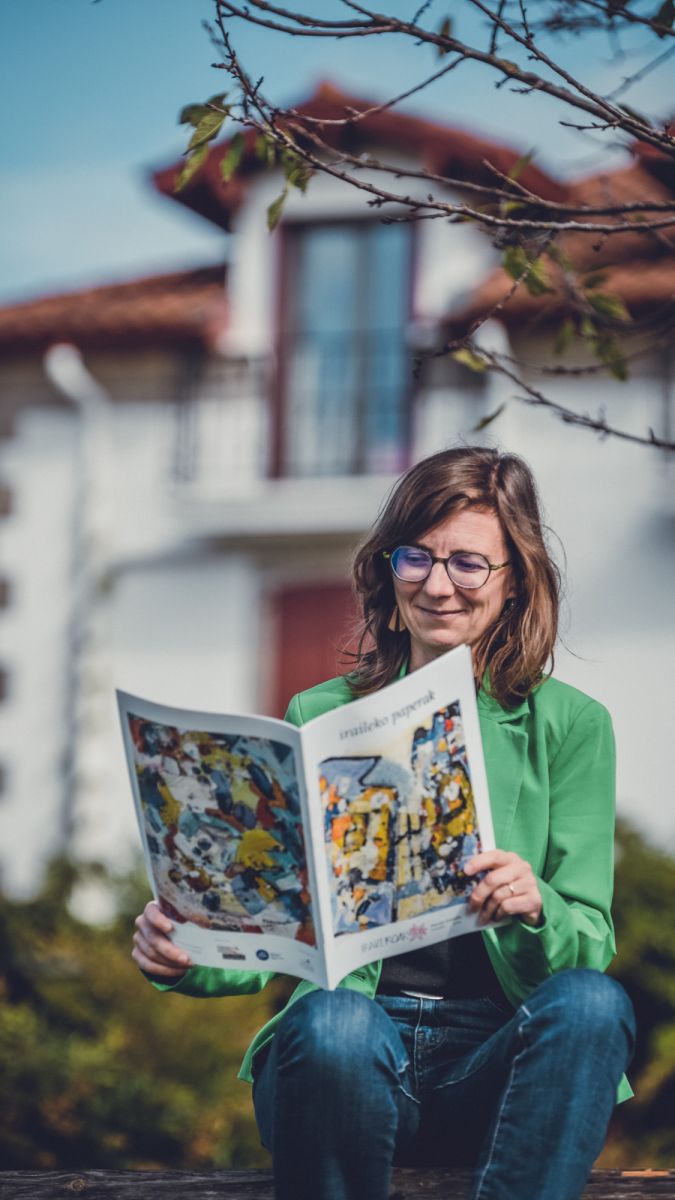
Mention should also be made of the poetry of Maiatz and Hatsa, who make an important contribution to the poetry of Ipar Euskal Herria. Hatsa's
poetry publishes a book all year round, gathering some unpublished poems from many poets. There are almost eighty issues of Maiatz magazine, and there are also treasures in them. But those books are not found on the Internet, in Ipar Euskal Herria there is also no library with all the numbers. How can we evidence that poetry by Ipar Euskal Herria? I think we should socialize, reciting poetry, more academic work on these texts, master's works, theses, conferences...
"The priority is focused on the formation of vascospeakers (...) You can spend the four years of college in Basque without reading Cervantes in Spanish or Shakespeare in English"
He also mentioned that transmission is weak both at home and in schools. It is a subject that you have worked closely on, the teaching of literature. In
high school, the literature is little cultivated, priority is given to the education of the speaker. Within the framework of this European reference, that is the only objective: to train speakers. Our socio-linguistic context also leads teachers to this in a priority manner. But what is the point of forming speakers without transmitting culture or literature?
If you compare, in the French class, what is culture, literature and language is one, the only cosmovision. Language culture, literary culture and culture, as well as universal literature, all enter the French class. The contrast with the Basque courses is impressive. At least if we limit ourselves to what we have been asked to do academically, to form only speakers, also for low linguistic purposes. It's very unbalanced. In French, 24 literary works that are well read and worked at school (between 11 and 15 years) are needed. In the Liceo, literature is even more present, both children and youth literature and classical literature, works of art ranging from the 16th century XIX.era are and must necessarily be worked on in the program. Instead, you can spend four years of college in Basque or in other languages without reading Cervantes or Shakespeare in English, even partially. Some teachers are sensitized by this and try to introduce literature into the class. But there are working professors to train them in literature.
What does literature work in young people and children contribute? Why work and what for?
Everything is worked through literature. Language is cultivated, language is used to think, reflect, develop the critical spirit. Also creativity, imagination, playing with language with sounds, words, concepts, images. This will make them enlightened citizens and strong adults. In addition, history is acquired through literature, but from a human point of view. History schools focus on events and dates, on the order of events. On the contrary, through literature, you experience the event from the experience of a character. The same thing geographically: to know what the world is like, how people live, literature doesn't have the same. You can learn that there are so many migrants, etc., but when you read in Minorca it will have more impact, because it will affect the heart and the spirit.
In addition, it will contribute psychologically and affectively to the achievement of personal autonomy, to learning and to the improvement of personal perception. To see how complex it is to feel like this, to assume that complexity and to choose in life. So, through the literature, it seems to me that fundamental objectives are being worked out if we want to help children grow.
How do you do that literature work in class?It's
true that many people will say, and with reasons, that it's difficult, because children don't have language level. But the same is true of the main languages: in French, not all students are able to read classical works from the head. Various didactic and pedagogical techniques, audio books, ways to prepare courses, how to make a selection of texts, customizing or adapting them have been developed. Work it stylistically, relating it to other topics, among texts. I think there are many things to learn from the teaching of French literature; that is why we should learn. Change to audiovisual documents. Especially in recent years, he insists on the French field, on reading complete and classical works in class. And together with the programmes, a number of teaching and training resources have been developed. We should also build on that, although canonical works are not yet consolidated among us. But for kids to get out of the education system knowing the top writers and the top works, and reading, maybe not 24 works, but if it's twelve, it would be great. Read, prepared and internalized.
Does the time of numerical or digital pose difficulties?It is an exercise of reading that
should be an analysis of the text of the activity. I believe that the problem must be linked to the problem and progressions must be brought to a successful conclusion. The Zenta shows that in the smaller classes they glimpsed with the fables, the songs... and if we take advantage of the vitality and curiosity of the children, we try to take it further. We can also try to retain it during adolescence.
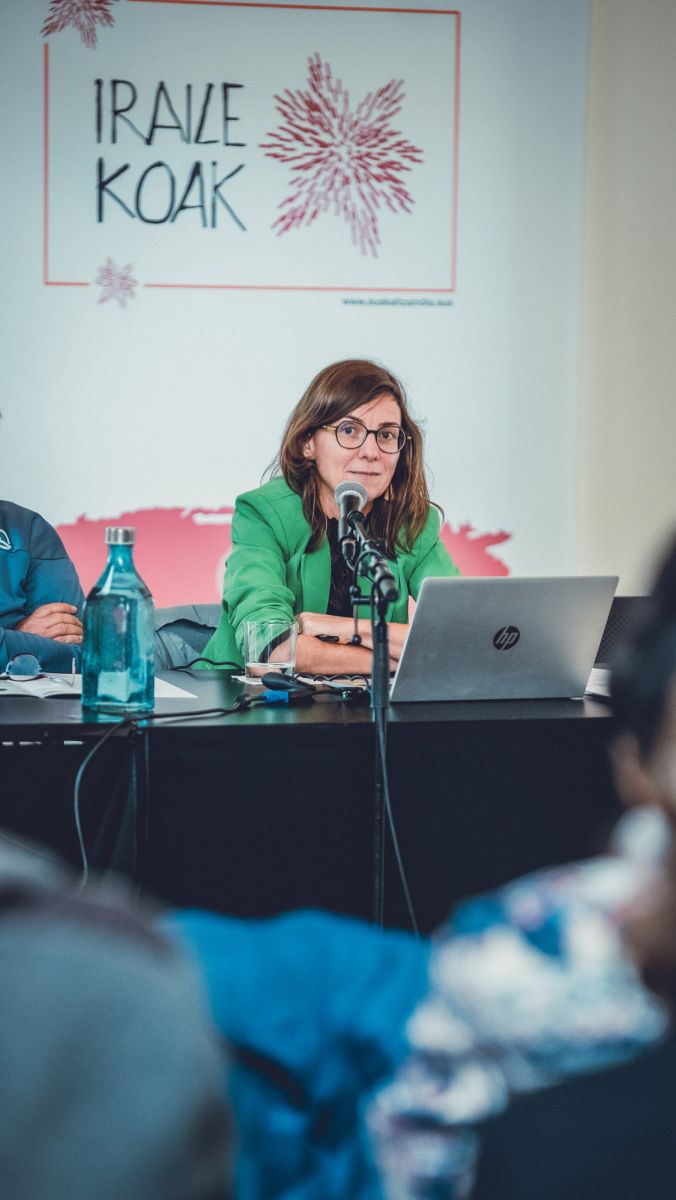
You also mentioned the song. Would you have to sing in the courses?
Many times we think that singing is just for small schools, and it makes me sad, because in schools, in the high schools and in college, there's no more singing. However, in art a wide variety of poetry has been transmitted through singing. Most people like to sing. And it's a shame to think that only kids will sing. And doing theater, singing, I think it gives her vitality and it's a way to socialize literature.
Literature also leads to creation.
Obviously, if there are a thousand exercises, you can give it the subject before you enter the book immediately and see what they can say. Let's see what that writer said afterwards. You can get motivated through writing, it's safe, you love it. If you present poetry as a game, with sounds and rhymes, at first they'll be contracted, but then they'll come in, they'll link. I've always had good experiences. In the end they like to play with words. It's great to work creativity through writing.
I've realized that some students who don't get used to literature don't see history in their heads, when they read a novel, they don't see the movie of events. In their heads it's very black, they have no imagination. You work your imagination. Literature requires knowing not only the language, but also some rhetorical and stylistic codes to establish connections. This is not a character, you learn to enjoy literature and you have to work this learning process in the classroom. If you haven't had such a tour, some of you won't have images. And I see this often comparable to the low ambition, the lack of imagination, which they also have for life. They will only be in the repetition of what surrounds them, without further reflection.
Astelehen honetan hasita, astebetez, Jon Miranderen obra izango dute aztergai: besteren artean, Mirande nor zen argitzeaz eta errepasatzeaz gain, bere figurarekin zer egin hausnartuko dute, polemikoak baitira bere hainbat adierazpen eta testu.
Martxoaren 17an hasi eta hila bukatu bitartean, Literatura Plazara jaialdia egingo da Oiartzunen. Hirugarren urtez antolatu du egitasmoa 1545 argitaletxeak, bigarrenez bi asteko formatuan. "Literaturak plaza hartzea nahi dugu, partekatzen dugun zaletasuna ageri-agerian... [+]
1984an ‘Bizitza Nola Badoan’ lehen poema liburua (Maiatz) argitaratu zuenetik hainbat poema-liburu, narrazio eta eleberri argitaratu ditu Itxaro Borda idazleak. 2024an argitaratu zuen azken lana, ‘Itzalen tektonika’ (SUSA), eta egunero zutabea idazten du... [+]









